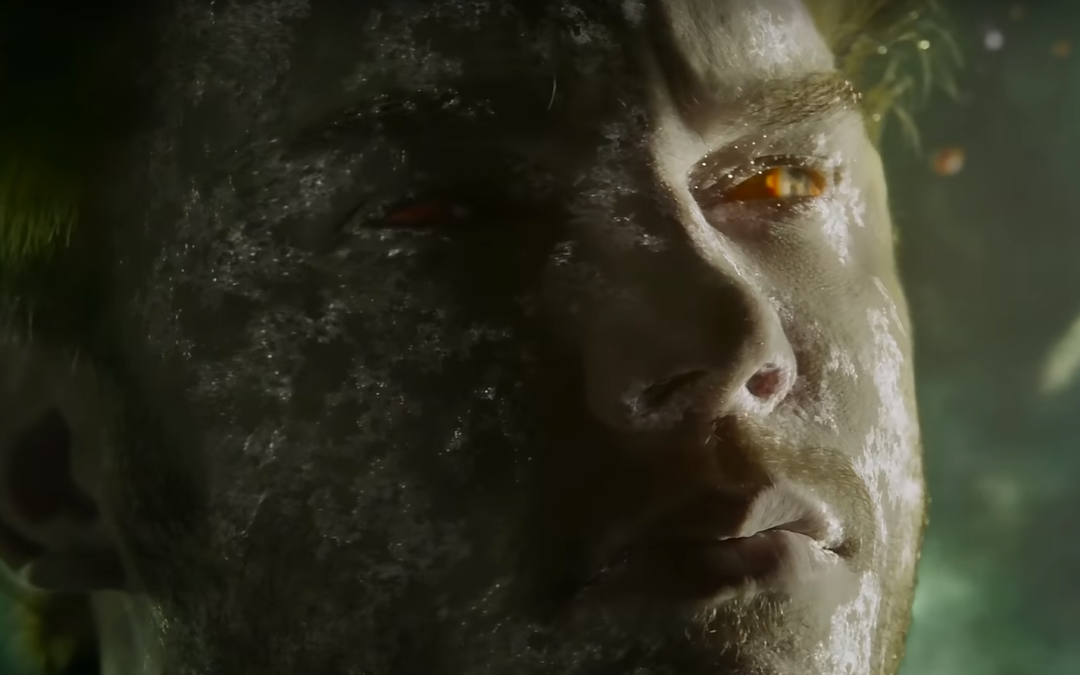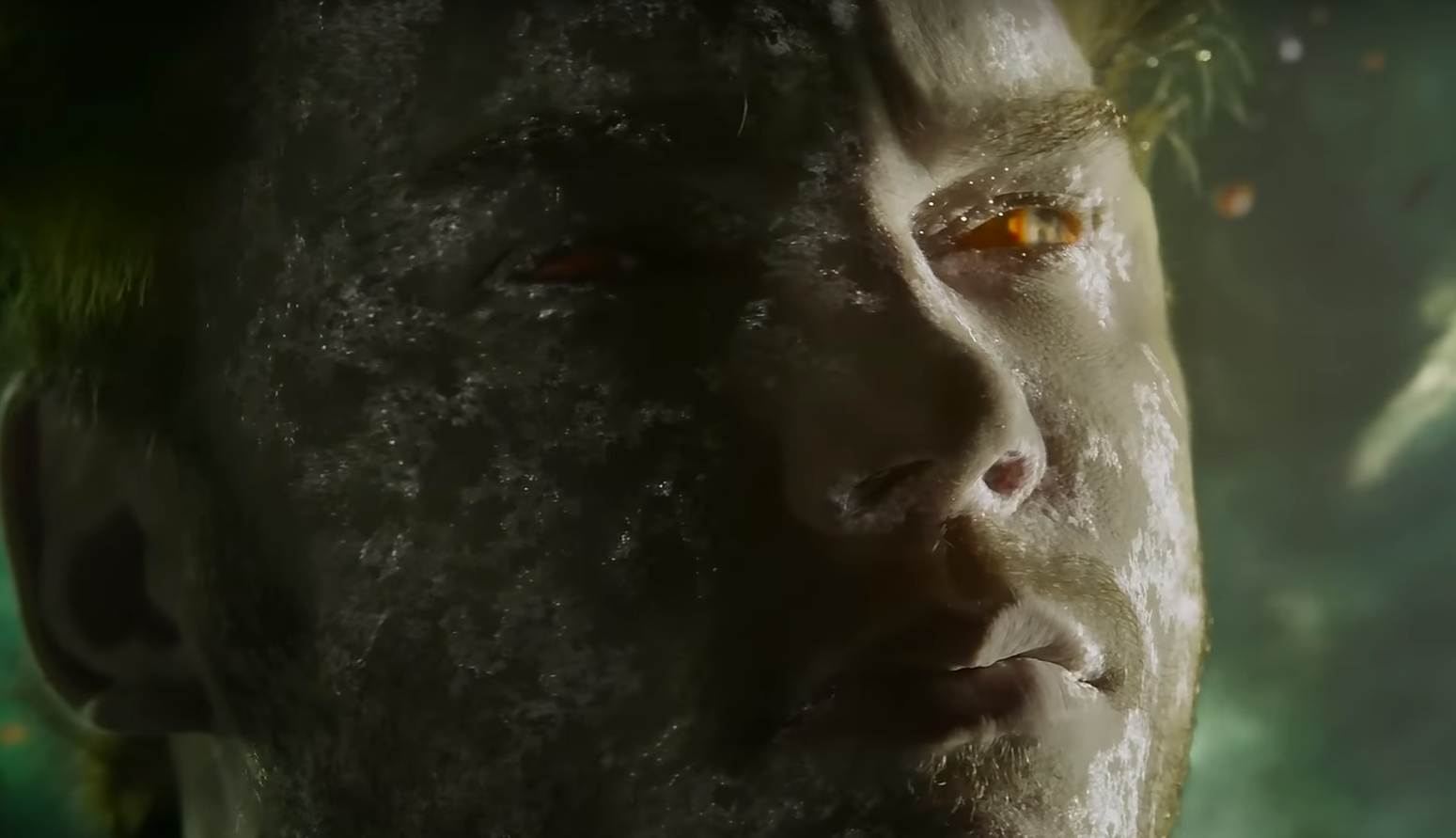No spoilers or anything, but for a two-movie franchise, Guardians of the Galaxy has a lot of people ending up in space without spacesuits.
And as it’s been seen for just about everyone, it’s not the place you want to be.
Used to be, people thought you’d just blow up in space – swell up like Violet Beauregard and then just pop. Gross. This idea wasn’t helped by the original Total Recall when Arnold Schwarzenegger and Rachel Ticotin end up on the surface of Mars without suits. Witness the classic:
As always, what makes for cool special effects often isn’t backed by accurate science. If you’re a fan of The Expanse on SyFy a lot of people ended up in space as well, and the results were…less than dramatic. It was almost as if they just…stopped, and they went into NPC mode.
So how do the scenes in space from Guardians stack up against real science? Not too bad, actually, although they do suffer from the same idea as most scenes where people get “spaced,” that is, it’s all about the temperature and the lack of oxygen. For our money, the pressure is the thing that’s going to mess you up quickly. Even if your pals can pull you back inside shortly after you go out – you’re not going to be in fighting shape for a long time.
Let’s run through what would happen in a rough timeline if you would, as we say in my class, “accidentally walk out the door of your spaceship.”
- The air in your lungs. It’s pulled out. Space has zero air pressure, so the air will move from the area of higher pressure (your lungs) to the area of lower pressure (space). This is and will be a problem later. You’ll reflexively try to breathe and pull in nothing.
And here’s where we can give Guardians a nod – the air in your lungs is humid, right? One of the hallmarks of being in space in a Guardians movie is the crust of frost that starts to form on your face. Humid air…low temperatures…not wanting to test this out for real…yeah – you could get a crust of frost on your face as the water vapor of your last breath goes through deposition (changes from a gas to a solid without a liquid phase) and frosts your face.
And this gas escape – it continues as your lungs work in reverse. Oxygen will be pulled out from the blood into the lungs and then up the trachea and out into space. Try to hold your breath through all of this, and your lungs will rupture as that air tries to get out and air bubbles will be forces into your blood vessels. Bummer.
- Exposed moisture. Your mouth will be open as you’re trying to breathe, and you’ve got moisture on your eyes. Yeah, that’s going to boil away. “But wait!” you say, “Space is cold. Liquids won’t boil in open space.”
But boiling isn’t just a function of temperature. The temperature at which a liquid boils also depends upon the air pressure. Once the vapor pressure of the liquid (think of it as the liquid’s molecules dancing up and out as gas, or as I tell my students, to keep it simple, the “push up”) is equal to the air pressure of the local atmosphere (the “push down”) there is no reason for the liquid to remain a liquid. That’s why water boils at less than 100°C high on a mountain (lower air pressure) and more than 100°C (higher air pressure) in say, Death Valley.
In space, there’s no air pressure – no “push down,” so there’s no reason for the liquid to remain a liquid. Boil.
- You blood and body fluids. Will not boil (just yet). Thank your circulatory system and skin for keeping the pressure inside you high enough for a little while longer to keep the liquids…liquids. Given their proximity to the surface, the small blood vessels in your eyes may rupture.
- You will get puffy. Your skin is helpful, but it’s not magic. Near the surface, the bubbles of nitrogen gas in your blood will expand – that’s Boyle’s Law from chemistry. Decrease the pressure, and the volume of the gas will expand. Close to the surface of the skin, the bubbles of gas will expand until you get close to twice your size. You’d laugh at the ridiculousness of it all if you weren’t freaking out. You’ve been outside for about ten seconds. Time to start dying for real.
- Go night-night now. If you’re outside for more than about fifteen seconds, your brain realizes it had a good run and starts to close up shop. Fifteen seconds or so is how long it takes the deoxygenated blood to get from the brain back to the lungs. If you’ve been without oxygen for fifteen seconds, your brain isn’t getting the oxygen it needs, and you’re going hypoxic. If you’re lucky, this is when you’ll black out. The final countdown clock has begun.
- SPF-OMG. Any exposed skin will burn thanks to solar rays hitting it unimpeded by the atmosphere, which block the bulk of the ultraviolet-B rays (the really bad ones). But more than the UV, your skin is being hit by everything the local stars are spitting out.
- Still swelling. More liquids close to the surface are evaporating – water from muscles, lymph, and other fluids. If they can’t get out, the gasses will just collect under the skin. You’re bruising and it’s not comfortable. Again, hopefully you blacked out somewhere around the ten second mark or shortly thereafter.
- Blood problems. Your heart rate and arterial blood pressure will fall, but your venous blood pressure will rise, due to the gas build up in the veins. As the venous pressure grows and meets the arterial blood pressure, circulation in the body just stops. But your pressure is getting dangerously low to the point that it can start to boil.
- Nose and throat issues. As the moisture boiled/evaporated away, it took heat with it. The mouth, eyes and nose will quickly reach freezing temperatures and bringing the frostbite. That’s not good, but what do you care? It’s been fifteen seconds by now. You’re unconscious.
- Time to get your death on. Oh, you’ve been dying all along, but after thirty or forty-five seconds, your body begins to die in earnest. Convulsions from the hypoxia. Skin turns blue from lack of oxygen (cyanosis). Your organs are starting to accumulate damage from lack of oxygen.
- Final moments. How long can you make it in open space without a suit? Again, unsurprisingly, no astronaut is willing to test this to know for sure, but medical research suggests that if you can be pulled back in somewhere between ninety seconds and two minutes, re-pressurized and warmed up, you might be okay – after a nice long recovery. But if there’s no space buddy to pull you back in? You’re dead after two minutes for sure.
And the culprit? Ultimately what kills you in space is the lack of oxygen – what little you may take out with you is ripped out of your lungs, and there’s nothing outside to replace it. Lousy, old fashioned way to die for such a science fiction method.
Why didn’t I say anything about the cold?
Because that’s not what kills you.
Oh, space is cold – no doubt, but it’s also empty. There’s nothing to move the heat away from your body. Think of it this way. Fill a tub with water that’s say, 75°F and get in. That’s lukewarm. Eventually you’ve become hypothermic. Why? The water takes the heat away from your body. Or rather, your body heat (about 100 Watts) is warming up the water closest to your body. That warm water is replaced by cooler water. Your body warms that water, it’s replaced by cooler water, etc, etc, etc.
In space, there’s no matter to be heated by the Wattage you’re pumping out. Heat moves via three mean: convection (heat in a fluid, like a pot of water or air near a space heater), conduction (direct contact) and radiation (like the sun). Of those three, conduction and convections need a matter for the heat transfer. Radiation – the slowest of the three – doesn’t.
Getting cold in space – sure, you’ll get cold while you’re outside, but it’s going to take a while. Your skin will probably freeze quickly, and of course the low mass of water vapor will form your frosty coating, but your core temperature will take a nice leisurely trip from body temp down to…well, whatever the temperature is in your localized corner of space.
Eventually? Sure – you will…technically, your body will come into a thermal equilibrium with that area of space and be a pretty solid object. From there – your body will be the plaything of gravity, following Newton’s Law of Universal Gravitation and responding to any local gravity fields and heat sources that it might approach.
After a few thousand or million years, if your body is lucky, you might get close enough to a planet with a thick enough atmosphere and be pulled in. Burn bright, you crazy shooting star.
And hey – to bring this back around to Guardians, when the first movie came out, there were questions about how Peter Quill managed to stay alive in space (outside of Knowhere) long enough to save Gamora. Guardians writer/director James Gunn responded in a Facebook post (that’s now part of his FAQ):
– How did he stay alive without a mask when he saved Gamora out in space?
Gunn: He blew all the air out of his lungs. You can stay alive in outer space for a short while if you don’t have air in your lungs. The scene is in slow-motion, so it’s longer than it seems. AND Rocket clearly says there’s some atmosphere outside of Knowhere – just because there’s no gravity doesn’t mean there’s zero atmosphere.
– Haha that’s not science.
Gunn: It is science.
– People EXPLODE when they’re out in space without a space mask.
Gunn: No, they don’t. That’s a myth.
– I saw it in a documentary called Total Recall.
Gunn: That’s not a documentary.
Gunn knows his space science and his Total Recall.
Where to from here?
Astronaut Jim LeBlanc was testing a pressure suit for NASA when a leak depressurized down to almost complete vacuum. He lost consciousness after 14 seconds, but the last thing he remembers feeling was the moisture on his tongue starting to boil.
io9 – “19 Times Someone Gets Thrown Into the Vacuum of Space, from Worst to Best.”
Scientific American – “Survival in Space Unprotected is Possible — Briefly”








